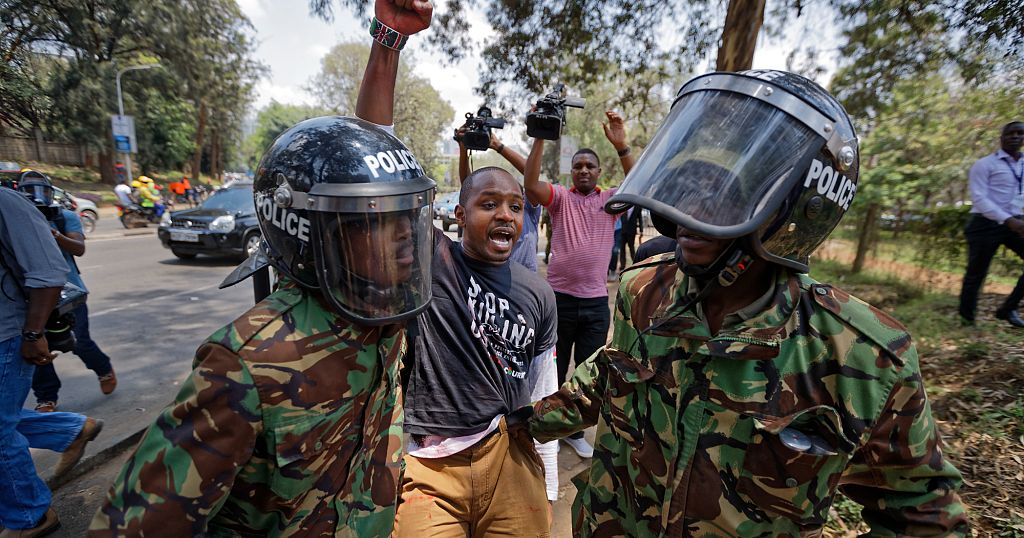Prominent Kenyan activist Boniface Mwangi has been charged with terrorism-related offenses, nearly a month after nationwide protests against economic hardship and alleged government overreach turned violently fatal. The 19 deaths reported during the June 25 demonstrations in Nairobi have intensified scrutiny of both protest organizers and Kenyan authorities, with Mwangi’s arrest sparking accusations of political retribution against dissent.
Police allege the outspoken human rights advocate played a role in facilitating violence during the anti-government rallies, which saw clashes between security forces and citizens protesting rising living costs and perceived corruption. During raids on his Nairobi office and residence, authorities claim to have recovered unused teargas canisters, a blank firearm cartridge, laptops, mobile phones, and notebooks. Mwangi now faces charges including unlawful ammunition possession, though formal terrorism charges are pending further investigation.
Social media platforms erupted following the arrest, with the hashtag #FreeBonifaceMwangi gaining momentum as users condemned what many called a targeted effort to stifle criticism. Supporters point to Mwangi’s decade-long track record as a civil rights campaigner, noting his prior arrests and documented threats tied to his activism against police violence and institutional graft. “This isn’t about justice—it’s about silencing those who challenge power,” wrote one Nairobi-based lawyer in a widely shared post.
The unrest traces back to late June, when the death of political blogger Albert Ojwang in police custody galvanized public outrage. Ojwang’s detention followed his social media posts criticizing fiscal policies that demonstrators argue have exacerbated inflation and unemployment. His death became emblematic of broader frustrations over security force conduct, with eyewitness accounts and rights groups alleging excessive force during the protests.
Mwangi’s legal team has dismissed the terrorism allegations as “baseless and politically motivated,” emphasizing that blank cartridges lack explosive capacity and arguing the seized items were unrelated to violent acts. International human rights organizations, including Amnesty International, have called for transparent judicial proceedings amid concerns over shrinking civic space in Kenya.
The case unfolds against a backdrop of heightened tensions, with analysts noting parallels to previous governments’ crackdowns on dissent. While authorities maintain the charges reflect legitimate security concerns, activists warn the move could deepen public distrust in institutions meant to uphold accountability—a central demand of the June protests. As court hearings approach, the outcome may signal Kenya’s trajectory in balancing national security priorities with constitutional protections for free speech and assembly.
